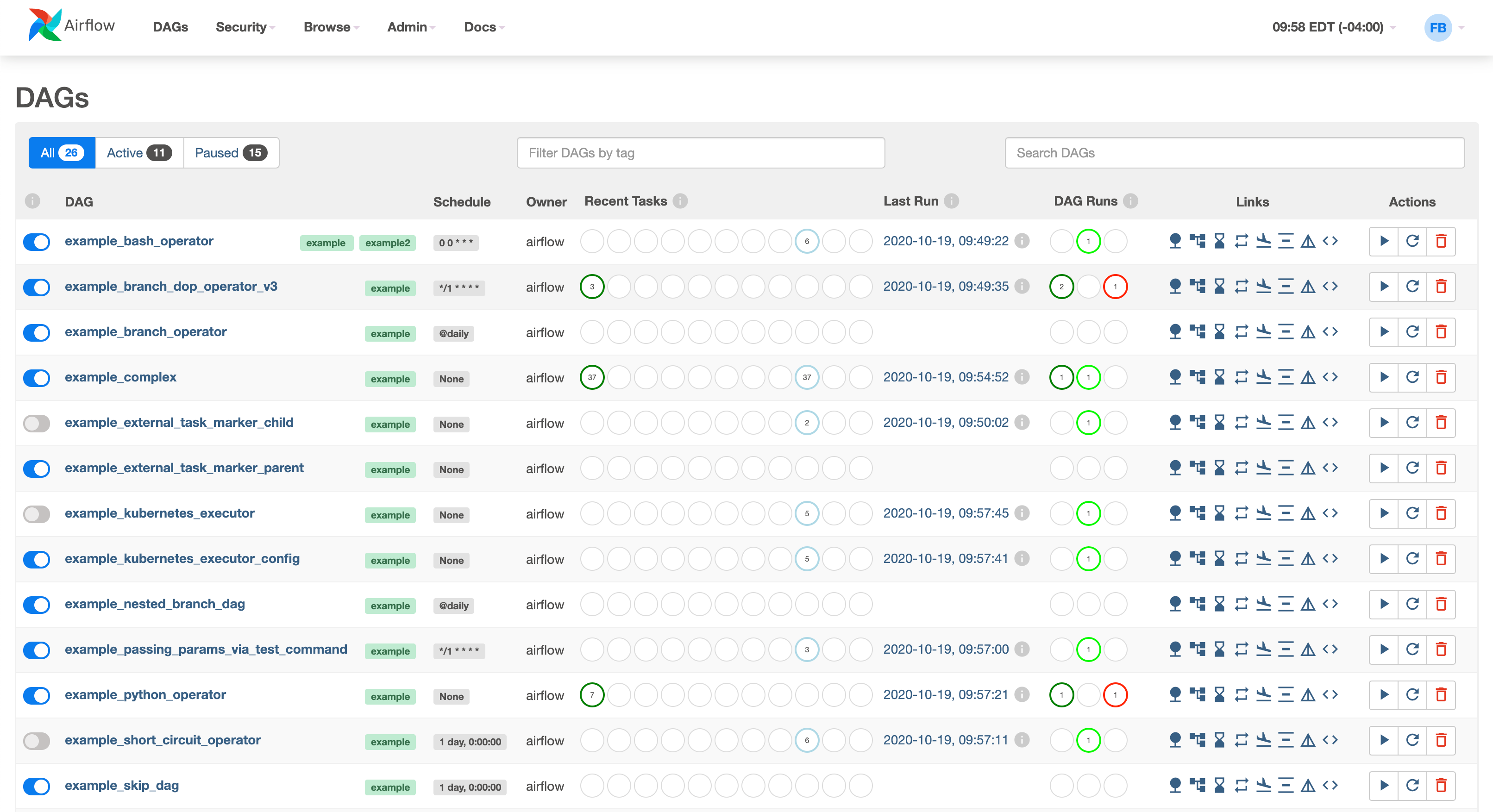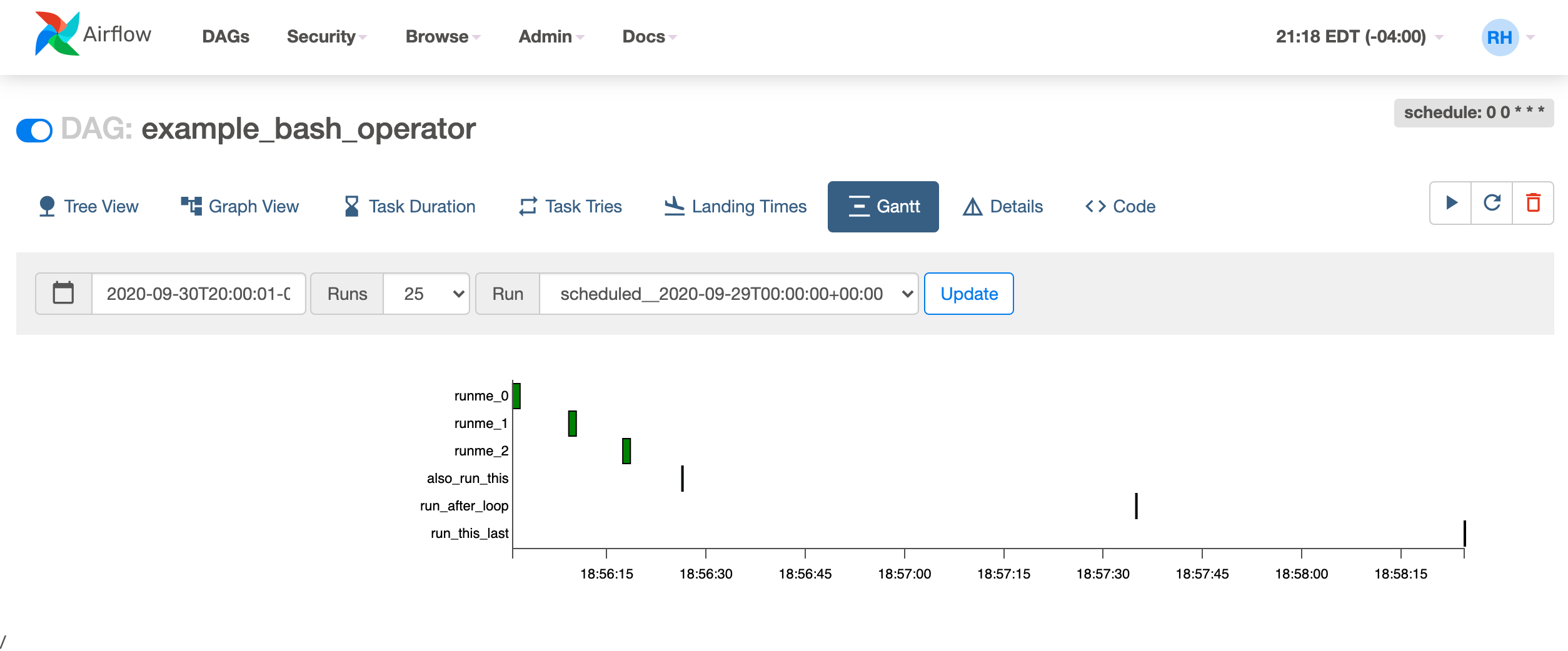|
|
||
|---|---|---|
| .github | ||
| airflow | ||
| chart | ||
| clients | ||
| dags | ||
| dev | ||
| docker-context-files | ||
| docs | ||
| empty | ||
| hooks | ||
| images | ||
| kubernetes_tests | ||
| license-templates | ||
| licenses | ||
| manifests | ||
| metastore_browser | ||
| provider_packages | ||
| scripts | ||
| tests | ||
| .asf.yaml | ||
| .bash_completion | ||
| .coveragerc | ||
| .dockerignore | ||
| .editorconfig | ||
| .flake8 | ||
| .gitignore | ||
| .hadolint.yaml | ||
| .mailmap | ||
| .pre-commit-config.yaml | ||
| .rat-excludes | ||
| .readthedocs.yml | ||
| BREEZE.rst | ||
| CHANGELOG.txt | ||
| CI.rst | ||
| CODE_OF_CONDUCT.md | ||
| CONTRIBUTING.rst | ||
| Dockerfile | ||
| Dockerfile.ci | ||
| IMAGES.rst | ||
| INSTALL | ||
| INTHEWILD.md | ||
| LICENSE | ||
| LOCAL_VIRTUALENV.rst | ||
| MANIFEST.in | ||
| NOTICE | ||
| README.md | ||
| STATIC_CODE_CHECKS.rst | ||
| TESTING.rst | ||
| UPDATING.md | ||
| breeze | ||
| breeze-complete | ||
| codecov.yml | ||
| confirm | ||
| pylintrc | ||
| pyproject.toml | ||
| pytest.ini | ||
| setup.cfg | ||
| setup.py | ||
| yamllint-config.yml | ||
README.md
Apache Airflow
Apache Airflow (or simply Airflow) is a platform to programmatically author, schedule, and monitor workflows.
When workflows are defined as code, they become more maintainable, versionable, testable, and collaborative.
Use Airflow to author workflows as directed acyclic graphs (DAGs) of tasks. The Airflow scheduler executes your tasks on an array of workers while following the specified dependencies. Rich command line utilities make performing complex surgeries on DAGs a snap. The rich user interface makes it easy to visualize pipelines running in production, monitor progress, and troubleshoot issues when needed.
Table of contents
- Requirements
- Getting started
- Installing from PyPI
- Official source code
- Convenience packages
- Project Focus
- Principles
- User Interface
- Contributing
- Who uses Apache Airflow?
- Who Maintains Apache Airflow?
- Can I use the Apache Airflow logo in my presentation?
- Airflow merchandise
- Links
Requirements
Apache Airflow is tested with:
| Master version (2.0.0dev) | Stable version (1.10.12) | |
|---|---|---|
| Python | 3.6, 3.7, 3.8 | 2.7, 3.5, 3.6, 3.7, 3.8 |
| PostgreSQL | 9.6, 10, 11, 12, 13 | 9.6, 10, 11, 12, 13 |
| MySQL | 5.7, 8 | 5.6, 5.7 |
| SQLite | latest stable | latest stable |
| Kubernetes | 1.16.2, 1.17.0 | 1.16.2, 1.17.0 |
Note: SQLite is used primarily for development purpose.
Additional notes on Python version requirements
- Stable version requires at least Python 3.5.3 when using Python 3
Getting started
Visit the official Airflow website documentation (latest stable release) for help with installing Airflow, getting started, or walking through a more complete tutorial.
Note: If you're looking for documentation for master branch (latest development branch): you can find it on ReadTheDocs.
For more information on Airflow's Roadmap or Airflow Improvement Proposals (AIPs), visit the Airflow Wiki.
Official Docker (container) images for Apache Airflow are described in IMAGES.rst.
Installing from PyPI
We publish Apache Airflow as apache-airflow package in PyPI. Installing it however might be sometimes tricky
because Airflow is a bit of both a library and application. Libraries usually keep their dependencies open and
applications usually pin them, but we should do neither and both at the same time. We decided to keep
our dependencies as open as possible (in setup.py) so users can install different versions of libraries
if needed. This means that from time to time plain pip install apache-airflow will not work or will
produce unusable Airflow installation.
In order to have repeatable installation, however, introduced in Airflow 1.10.10 and updated in
Airflow 1.10.12 we also keep a set of "known-to-be-working" constraint files in the
orphan constraints-master and constraints-1-10 branches. We keep those "known-to-be-working"
constraints files separately per major/minor python version.
You can use them as constraint files when installing Airflow from PyPI. Note that you have to specify
correct Airflow tag/version/branch and python versions in the URL.
- Installing just Airflow:
pip install apache-airflow==1.10.12 \
--constraint "https://raw.githubusercontent.com/apache/airflow/constraints-1.10.12/constraints-3.7.txt"
- Installing with extras (for example postgres,google)
pip install apache-airflow[postgres,google]==1.10.12 \
--constraint "https://raw.githubusercontent.com/apache/airflow/constraints-1.10.12/constraints-3.7.txt"
For information on installing backport providers check https://airflow.readthedocs.io/en/latest/backport-providers.html.
Official source code
Apache Airflow is an Apache Software Foundation (ASF) project, and our official source code releases:
- Follow the ASF Release Policy
- Can be downloaded from the ASF Distribution Directory
- Are cryptographically signed by the release manager
- Are officially voted on by the PMC members during the Release Approval Process
Following the ASF rules, the source packages released must be sufficient for a user to build and test the release provided they have access to the appropriate platform and tools.
Convenience packages
There are other ways of installing and using Airflow. Those are "convenience" methods - they are
not "official releases" as stated by the ASF Release Policy, but they can be used by the users
who do not want to build the software themselves.
Those are - in the order of most common ways people install Airflow:
- PyPI releases to install Airflow using standard
piptool - Docker Images to install airflow via
dockertool, use them in Kubernetes, Helm Charts,docker-compose,docker swarmetc. You can read more about using, customising, and extending the images in the Latest docs, and learn details on the internals in the IMAGES.rst document. - Tags in GitHub to retrieve the git project sources that were used to generate official source packages via git
All those artifacts are not official releases, but they are prepared using officially released sources. Some of those artifacts are "development" or "pre-release" ones, and they are clearly marked as such following the ASF Policy.
Project Focus
Airflow works best with workflows that are mostly static and slowly changing. When the structure is similar from one run to the next, it allows for clarity around unit of work and continuity. Other similar projects include Luigi, Oozie and Azkaban.
Airflow is commonly used to process data, but has the opinion that tasks should ideally be idempotent, and should not pass large quantities of data from one task to the next (though tasks can pass metadata using Airflow's Xcom feature). For high-volume, data-intensive tasks, a best practice is to delegate to external services that specialize on that type of work.
Airflow is not a streaming solution. Airflow is not in the Spark Streaming or Storm space.
Principles
- Dynamic: Airflow pipelines are configuration as code (Python), allowing for dynamic pipeline generation. This allows for writing code that instantiates pipelines dynamically.
- Extensible: Easily define your own operators, executors and extend the library so that it fits the level of abstraction that suits your environment.
- Elegant: Airflow pipelines are lean and explicit. Parameterizing your scripts is built into the core of Airflow using the powerful Jinja templating engine.
- Scalable: Airflow has a modular architecture and uses a message queue to orchestrate an arbitrary number of workers.
User Interface
-
DAGs: Overview of all DAGs in your environment.
-
Tree View: Tree representation of a DAG that spans across time.
-
Graph View: Visualization of a DAG's dependencies and their current status for a specific run.
-
Task Duration: Total time spent on different tasks over time.
-
Gantt View: Duration and overlap of a DAG.
-
Code View: Quick way to view source code of a DAG.
Contributing
Want to help build Apache Airflow? Check out our contributing documentation.
Who uses Apache Airflow?
More than 350 organizations are using Apache Airflow in the wild.
Who Maintains Apache Airflow?
Airflow is the work of the community, but the core committers/maintainers are responsible for reviewing and merging PRs as well as steering conversation around new feature requests. If you would like to become a maintainer, please review the Apache Airflow committer requirements.
Can I use the Apache Airflow logo in my presentation?
Yes! Be sure to abide by the Apache Foundation trademark policies and the Apache Airflow Brandbook. The most up to date logos are found in this repo and on the Apache Software Foundation website.
Airflow merchandise
If you would love to have Apache Airflow stickers, t-shirt etc. then check out Redbubble Shop.












